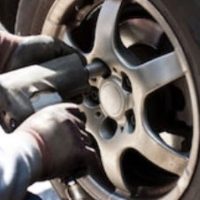Can Poor Maintenance Lead To Commercial Motor Vehicle Accidents?

Commercial motor vehicle (CMV) accidents occur for many different reasons, with some being traceable to negligence while some simply happen. One of the least discussed in terms of personal injury cases is the issue of negligent maintenance – when regular upkeep on a CMV is either not performed, or performed poorly. It can be difficult to draw a causal connection between maintenance (or lack thereof) and an accident, but it can be done. An attorney can help.
Causes Matter
CMVs are essentially vehicles operated for profit, which conform to certain specific standards depending on the jurisdiction in which they operate – for example, federal standards classify a CMV as a vehicle weighing 10,001 pounds or more, while Florida’s regulations only class vehicles of more than 26,001 pounds as CMVs. However, the standards for maintenance on these vehicles vary little simply because the result of negligence can be so devastating. Negligent maintenance can lead to liability just as easily as negligent driving or loading cargo.
Accidents involving CMVs can be devastating, because of the heavy vehicles and fast speeds at issue. A driver or passenger in a car or small truck is much more likely to be injured or killed in an accident with a CMV than with another car or small truck, and if someone survives the crash, the medical bills are more likely to be quite heavy. Determining the cause of the accident can make a significant difference in terms of who may be held liable and to what degree, and if poor maintenance is illuminated as a cause, damages may be higher or lower than if, say, only the driver were found liable.
Many Possible Ways To Cause Defects
If you suspect that poor maintenance played a role in your accident, you may be able to narrow it down to a more specific action. Some of the most common ways that negligent maintenance may lead to an accident include:
- Defective tires. Tire blowouts are common and can lead to serious accidents simply because of the energy stored in a tire. Alternatively, tires with no tread can lead to rollover crashes or jackknife accidents, where a CMV winds up on its side.
- Failure to perform oil changes. Since CMVs are so large, they require a lot of lubrication to keep their parts running, and a lack of oil can lead to friction and explosion in the worst case scenario.
- Brake failure. Whether due to a design or manufacturing defect (which would make a case in the realm of product liability) or to negligent maintenance, brake failures are the most common cause of CMV-involved traffic crashes. Lack of brake fluid, problems with compressed air or with any of the moving parts will inevitably result in damage to the vehicle – and to others.
It can be difficult to establish that negligent maintenance of a CMV played a role in your accident, but you have the right to try and find out. Companies have a duty of care to both their consumers and their employees, and that translates into a duty to road users when they are trying to satisfy their obligations. A breach of that duty is actionable.
Call A Tampa CMV Accident Attorney
If you have been involved in a road accident with a CMV, it can feel too overwhelming to try and hold anyone accountable, particularly if you are unsure of the cause of the accident. A Tampa CMV accident attorney can help you seek damages for what you have been through and answer your questions about the process. The Rinaldo Law Group is ready to try to help. Call our office today for a free consultation.
Source:
law.cornell.edu/uscode/text/49/31132












